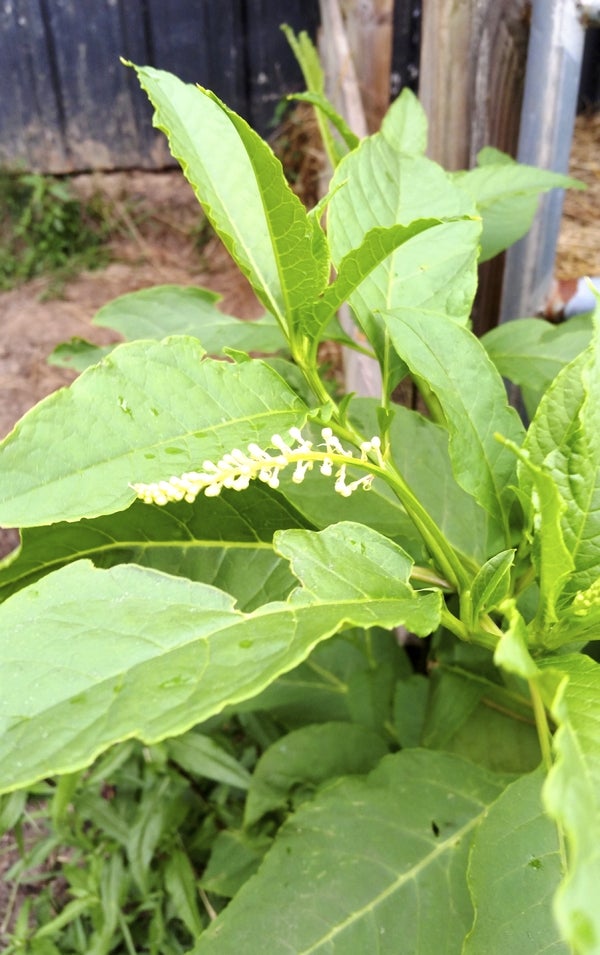Drought conditions could increase chances for poisoning in livestock
Published 12:00 am Friday, July 17, 2015

- Cooperative Extension Poke weed is poisonous to livestock, which usually avoid the plant. Drought conditions may change eating habits.
By Jordon Shipton
Cooperative Extension Intern
When we feel blistering heat and grass crunching under our feet, it can be disheartening to come to terms with the fact that we may need to supplement our livestock feed during the summer months.
During these dry days, pasture grasses are drying out and weeds are becoming more prominent, giving our livestock little choices for browsing and grazing. If animals become hungry enough, they may start tasting plants that are not good for them and may even be poisonous.
Many weeds can grow during dry conditions or when the soil pH is too low. The drought conditions in our area can also increase the toxicity of some of the weeds in our pastures.
Some weeds that are not poisonous but may be prolific right now include broomsedge, cockleburr, bitter sneezeweed, common mullein, horseweed, goldenrod, ragweed (the culprit for hay fever), pigweed, spiny amaranth, dog fennel and curly dock.
Some of the poisonous weeds include hemp dogbane, milkweed, jimsonweed, poke berry, horsenettle, black nightshade, bracken ferns, perilla mint and Chinese lantern.
Besides these herbaceous weeds, some tree leaves such as red maple can be poisonous to horses during times of drought and in the fall. Wild cherry trees can also be toxic to livestock when wilted leaves or twigs are consumed. Also, the seeds of the fruits are also toxic and actually contain some of the highest levels of toxins in the plant.
The pits of peaches and seeds in apples also contain the same toxins, although it would take more apples than you would be willing to buy at the grocery store to poison your horse.
Before you head out the door to cut down every maple and cherry tree within a mile radius of your pasture, remember that more than likely your horses or cows will not consume these poisonous plants unless they are very hungry and without any other options.
Therefore, it is important to manage your pastures in a way that is preferable for the growth of the grasses that you desire. If weeds become too prevalent, you may need to consider conducting a soil test and reseeding your pasture or establishing a regular spray program for weeds using university-recommended herbicides.
It’s important to make sure feeding areas are free of any of the poisonous plants listed above; try not to feed animals around cherry or maple trees to lower the risk of consumption.
Keeping our animals safe and fed during these dry months should be a priority. Anyone with questions should contact the local extension office at 704-216-8970.
Jordon Shipton is a summer intern with Cooperative Extension in Rowan County.





